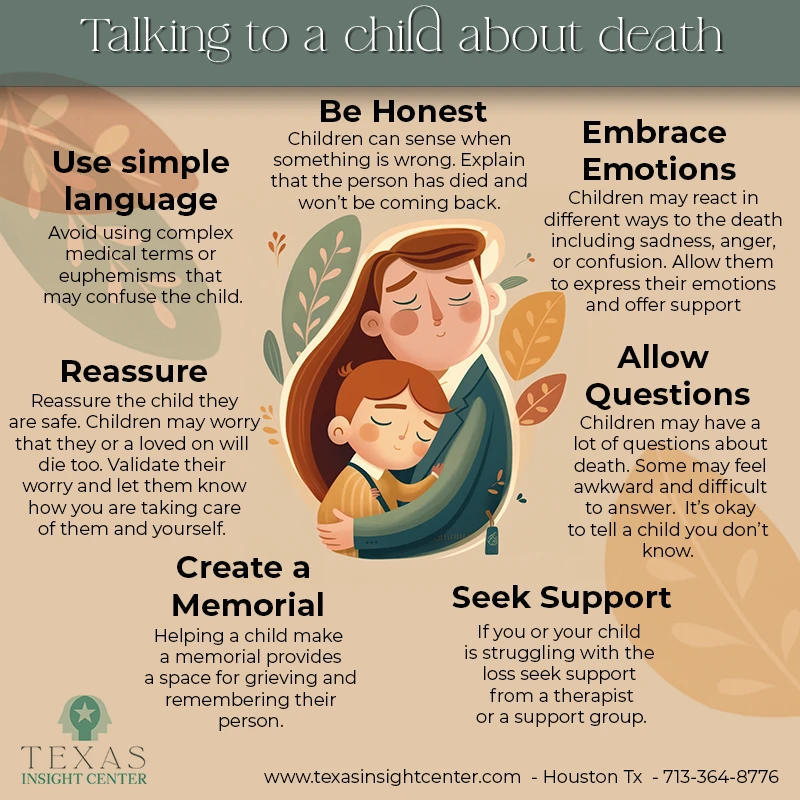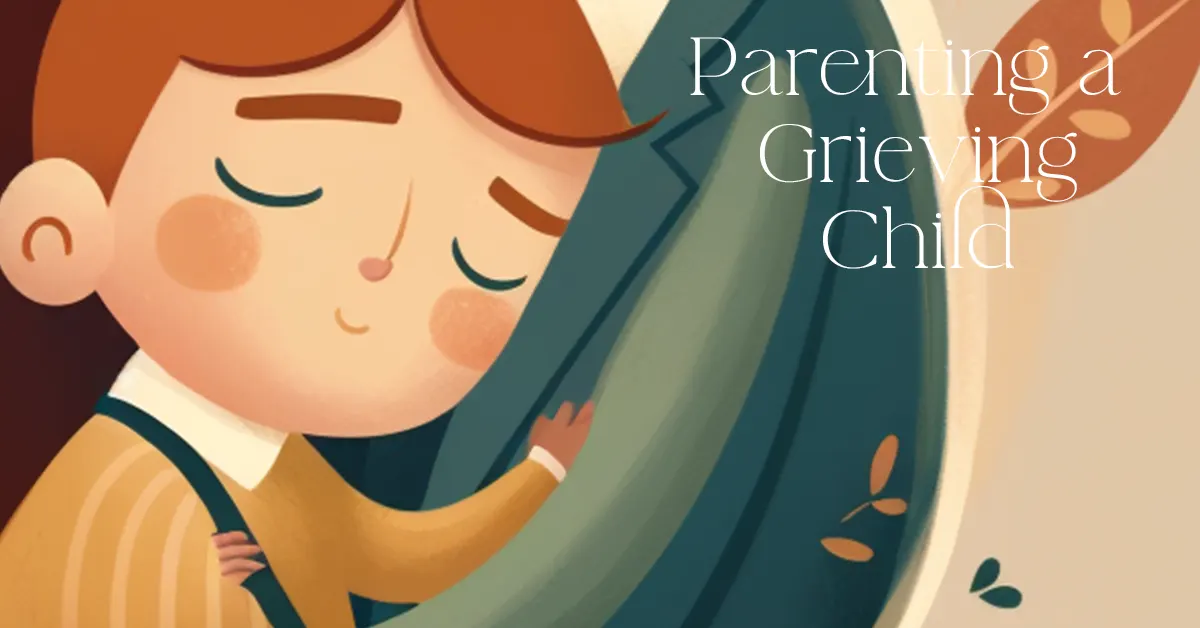One of the hardest things about being a parent is managing your emotional health while supporting and nurturing a child. When our families experience death, keeping a strong parental front requires a different skill level. Even among families, grief is unique to every person involved and has much to do with the family members’ ages.
I have spoken to many parents grieving, and every single concern they have is completely valid and 100 percent manageable. There is uncertainty about the effects grief may have on a child – fear the child will witness you grieving, difficulty in answering their questions – the list of worries can be limitless. Fortunately, with a little knowledge about how children grieve, you can support healthy development while also working with your grief.

For Preschool Children
Children experience grief the same as adults, except they express it differently. I have found this to be the single-most confusing part about parenting a grieving child. Depending on the child’s age, their understanding and response to grief will change over time. One of the changes can happen between ages 3 and 7 because grief is so different from adult grief.
Preschool or children younger than 5 do not understand time or have the ability to think of their world outside of themselves. Depending on the person who died, their expression of grief may be sporadic. One moment, they may become sad and ask a direct question about the deceased person. Within minutes, they will be right back to play. For a parent supporting a grieving child, this can become confusing. The key is to allow the child to grieve and recognize they are responding to new and unfamiliar emotions. Be honest and age-appropriate when answering questions and comfort the child while allowing them to feel their emotions.
For Elementary School Children
Once a child begins elementary school, their reactions to grief change quite a bit. They begin to recognize the finality of death and may ask for many details about the person who died. Their questions may seem intrusive or too graphic to explain. They may experience guilt or believe they had something to do with the death. This age also is when children may start acting out, losing sleep, and sometimes regressing to behaviors like bedwetting.
Following their lead is the best support you can give a child in this period. Answer their questions using concrete terms and language they understand. When they have difficulty with “big emotions,” provide them with an understanding that feelings can be scary or frustrating. Allow them to act out their emotions and help them identify them with words.
Don’t Forget to Support Yourself
Parenting a young child who has experienced loss is a challenge. It also can be easy to put your grief aside to support your child. Prioritizing your children is a natural response that needs monitoring when dealing with grief. If parents are not taking care of themselves, the grieving child may have difficulty meeting their emotional needs. And parents do not have to do this alone. If it gets too overwhelming, seek out a professional, join a support group, talk to a friend, and get help for you and your children.
Please fill out the Contact Page and request a free consultation if you have more questions about supporting your child or yourself while grieving. If you would like to join a support group, please get in touch with Bo’s Place to learn more about what they do.

